
The Untamed Wilderness of W National Park in Niger
W National Park in Niger is a vast and unspoiled wilderness, offering a unique glimpse into the rich biodiversity of West Africa. Spanning over 10,000 square kilometers, this UNESCO World Heritage site is part of the larger W-Arly-Pendjari Complex, which extends into neighboring Burkina Faso and Benin. The park is named after the W-shaped meanders of the Niger River that flow through it, creating a diverse landscape of savannas, forests, and wetlands. Visitors to W National Park can expect to encounter a wide variety of wildlife. The park is home to elephants, lions, leopards, and cheetahs, as well as rare species such as the West African manatee and the African wild dog. Bird enthusiasts will be delighted by the over 350 bird species that inhabit the area, including the majestic saddle-billed stork and the striking Abyssinian ground hornbill. The park also offers a range of activities for adventure seekers and nature lovers. Guided safaris, both by vehicle and on foot, provide an exciting way to explore the park's diverse habitats and observe its inhabitants. For a more leisurely experience, visitors can take boat trips along the Niger River, where they can enjoy the serene beauty of the landscape and spot hippos and crocodiles basking on the riverbanks. W National Park is not just a haven for wildlife; it also holds significant cultural and historical value. The park is dotted with archaeological sites, including ancient rock carvings and burial mounds, offering a fascinating glimpse into the region's past. For those interested in local culture, the nearby villages provide an opportunity to learn about the traditional lifestyles and customs of the indigenous communities.
Local tips in W National Park
- Visit during the dry season (November to April) for the best wildlife viewing opportunities.
- Hire a local guide to enhance your safari experience and gain insight into the park's ecology and history.
- Bring binoculars and a camera with a good zoom lens to capture the park's diverse birdlife and elusive animals.
- Wear light, long-sleeved clothing and comfortable walking shoes to protect yourself from the sun and insects.
- Consider staying in one of the eco-lodges within the park for an immersive experience and to reduce travel time.
The Untamed Wilderness of W National Park in Niger
W National Park in Niger is a vast and unspoiled wilderness, offering a unique glimpse into the rich biodiversity of West Africa. Spanning over 10,000 square kilometers, this UNESCO World Heritage site is part of the larger W-Arly-Pendjari Complex, which extends into neighboring Burkina Faso and Benin. The park is named after the W-shaped meanders of the Niger River that flow through it, creating a diverse landscape of savannas, forests, and wetlands. Visitors to W National Park can expect to encounter a wide variety of wildlife. The park is home to elephants, lions, leopards, and cheetahs, as well as rare species such as the West African manatee and the African wild dog. Bird enthusiasts will be delighted by the over 350 bird species that inhabit the area, including the majestic saddle-billed stork and the striking Abyssinian ground hornbill. The park also offers a range of activities for adventure seekers and nature lovers. Guided safaris, both by vehicle and on foot, provide an exciting way to explore the park's diverse habitats and observe its inhabitants. For a more leisurely experience, visitors can take boat trips along the Niger River, where they can enjoy the serene beauty of the landscape and spot hippos and crocodiles basking on the riverbanks. W National Park is not just a haven for wildlife; it also holds significant cultural and historical value. The park is dotted with archaeological sites, including ancient rock carvings and burial mounds, offering a fascinating glimpse into the region's past. For those interested in local culture, the nearby villages provide an opportunity to learn about the traditional lifestyles and customs of the indigenous communities.
When is the best time to go to W National Park?
Iconic landmarks you can’t miss
Murtala Park
Discover the serene beauty of Murtala Park in Minna, a perfect green oasis for family outings and peaceful retreats in Niger State, Nigeria.
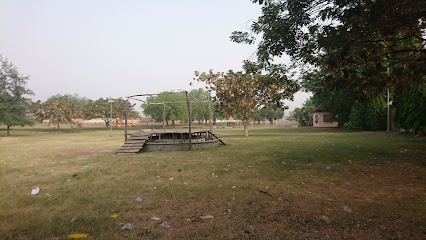
W National Park Benin
Discover the breathtaking landscapes and diverse wildlife of W National Park in Benin, a UNESCO World Heritage site perfect for nature lovers.
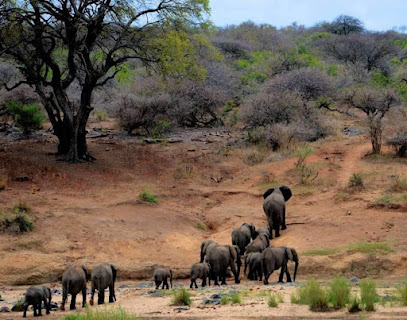
Parque nacional W de Níger
Discover the stunning landscapes and rich biodiversity of Parque Nacional W de Níger, a UNESCO World Heritage site and wildlife paradise in Niger.
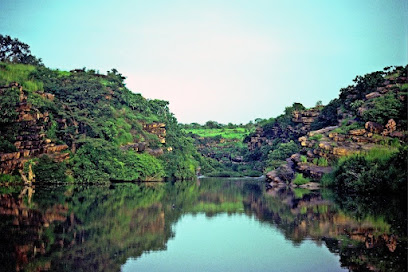
Heiskanen National Park
Explore the breathtaking landscapes and rich biodiversity of Heiskanen National Park, a serene escape into Niger's natural beauty.
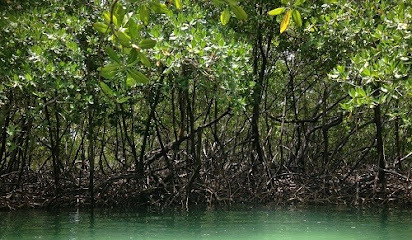
Aïr and Ténéré Addax Sanctuary
Explore the Aïr and Ténéré Addax Sanctuary, a wildlife refuge dedicated to preserving the endangered addax antelope in Niger's stunning desert landscapes.

Réserve naturelle nationale de Termit et de Tin-Toumma
Discover the breathtaking landscapes and unique wildlife of the Réserve naturelle nationale de Termit et de Tin-Toumma, a true gem of Niger's natural heritage.

Unmissable attractions to see
Boubou Hama National Museum
Explore the heritage of Niger at Boubou Hama National Museum, a cultural treasure in Niamey showcasing history, art, and local traditions.
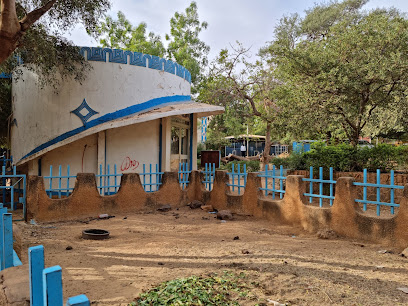
W National Park Benin
Explore the mesmerizing landscapes and vibrant wildlife of W National Park in Benin, a top destination for nature lovers and adventure seekers.
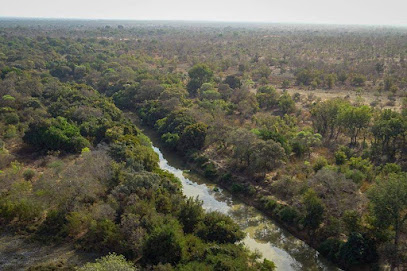
Pendjari National Park
Experience the breathtaking landscapes and rich wildlife of Pendjari National Park in Benin, a paradise for nature lovers and adventure seekers.
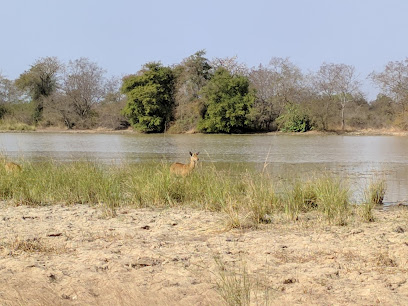
Kainji Lake National Park Administrative Office New-Bussa
Explore the serene beauty and vibrant wildlife of Kainji Lake National Park, a must-visit destination for nature lovers in Nigeria.
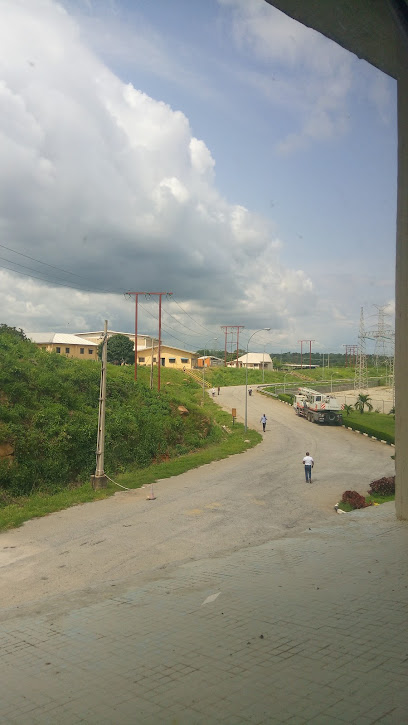
Parque nacional W de Níger
Explore the stunning landscapes and rich biodiversity of Parque Nacional W de Níger, a UNESCO World Heritage site offering unforgettable wildlife experiences.
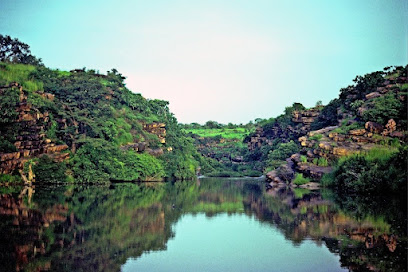
FERME YOUYOU
Experience the beauty of nature and the taste of local cuisine at Ferme Youyou, a serene farm destination in Niamey, Niger.
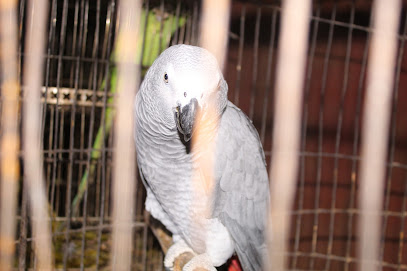
Heiskanen National Park
Explore the stunning landscapes and rich biodiversity of Heiskanen National Park, a tranquil retreat in Niger for nature lovers and outdoor enthusiasts.
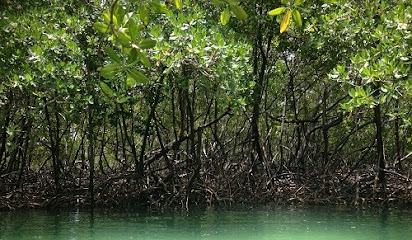
Place of Veterans
Explore the Place of Veterans in Niamey, a solemn memorial park honoring the courage and sacrifices of Niger's armed forces.
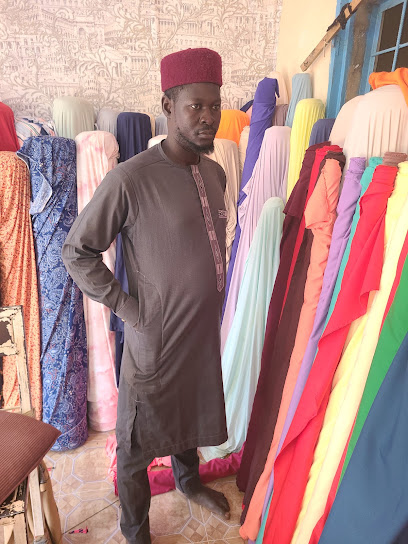
W du Benin National Park
Experience the natural beauty and wildlife of W du Benin National Park, a premier nature preserve in Benin offering unforgettable adventures in the heart of nature.
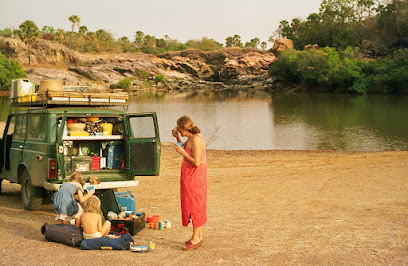
ⵛⵢⵗⵎⵎⵏⴻⵏ
Discover the tranquil beauty of ⵛⵢⵗⵎⵎⵏⴻⵏ Park, an oasis of nature and serenity in Niger.
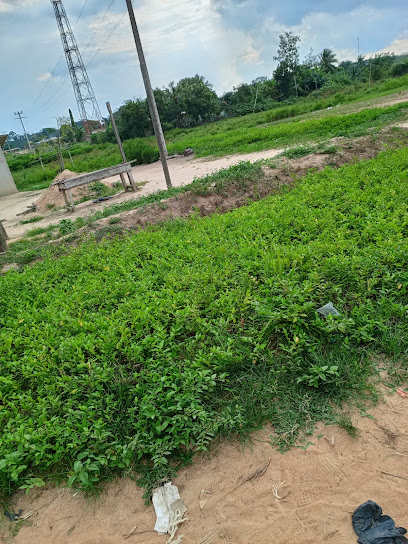
Essential places to dine
Amandine
Discover the rich flavors of Niger at Amandine - Niamey's premier dining destination for authentic cuisine and delightful ambiance.
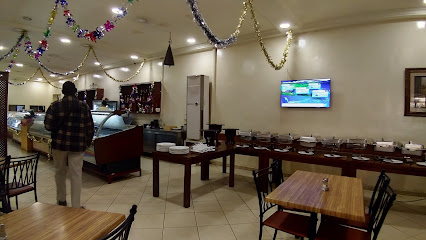
La Cabane
Experience authentic Nigerien flavors at La Cabane, a charming restaurant in Niamey offering diverse cuisine in a warm atmosphere.
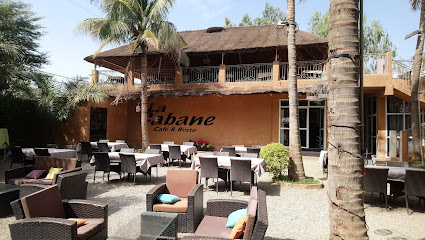
Côté Jardin
Discover Côté Jardin: A serene restaurant in Niamey serving exquisite local and international cuisine amidst lush gardens.
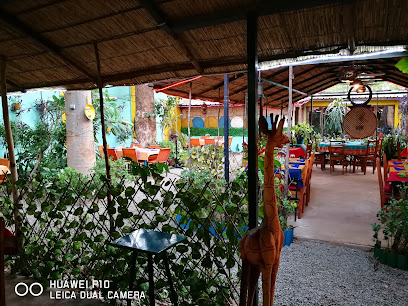
The Pillar Restaurant
Experience authentic Italian cuisine at The Pillar Restaurant in Niamey, where every meal is a delightful culinary journey.
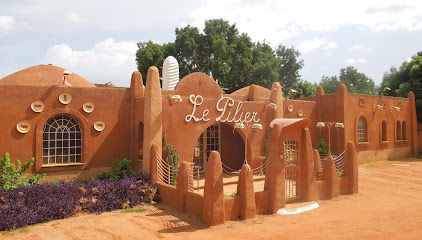
Tabakady by Bravia Eco Hotels
Experience the essence of Nigerien cuisine at Tabakady by Bravia Eco Hotels - where local flavors meet warm hospitality.
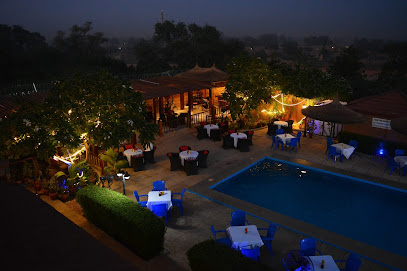
New York Restaurant and Bar
Experience the best of Nigerien cuisine at New York Restaurant and Bar – where every meal is a celebration of flavor!
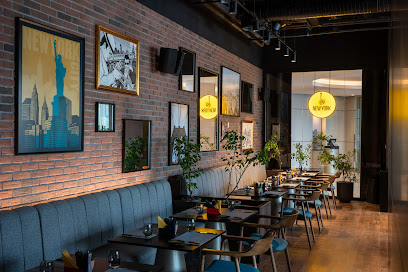
Cap Banga
Experience authentic Nigerien cuisine at Cap Banga, where local flavors meet stunning riverside views in Niamey.
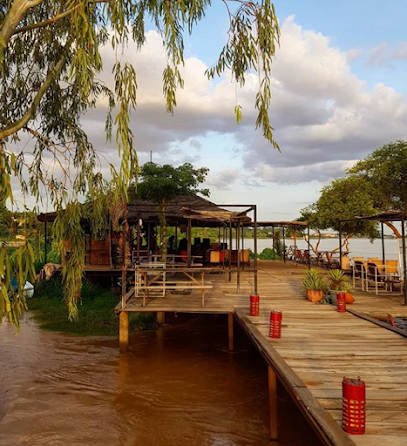
Restaurant Dragon D'or Niamey
Experience authentic Chinese flavors at Restaurant Dragon D'or in Niamey – where every dish tells a story.
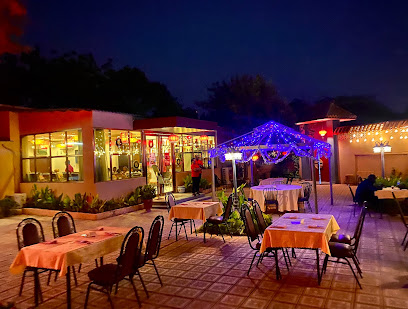
Maquis 2000
Experience authentic Nigerien cuisine at Maquis 2000 in Niamey - affordable dining with lively atmosphere and delicious local flavors.
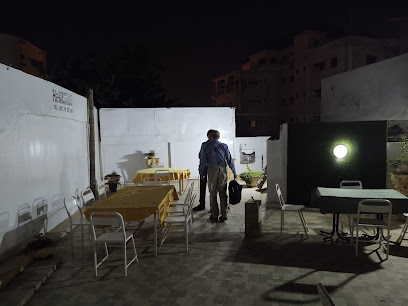
ALMINA Restaurant
Savor authentic flavors at ALMINA Restaurant in Niamey—where local cuisine meets exceptional service in an inviting atmosphere.
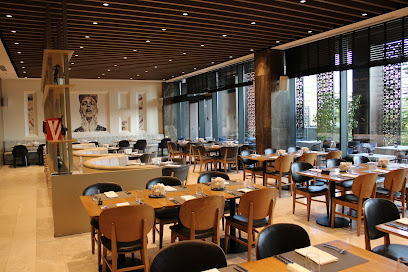
Zaxi Rooftop Lounge & Bar
Experience unparalleled dining at Zaxi Rooftop Lounge & Bar in Niamey—where exquisite flavors meet breathtaking views.
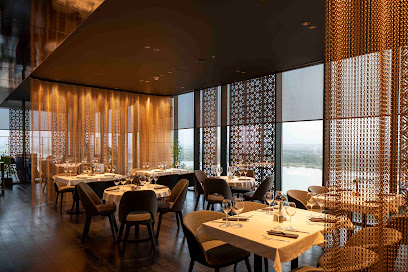
Restaurant Tegadezt
Experience authentic African cuisine at Restaurant Tegadezt in Niamey - where every meal tells a story.
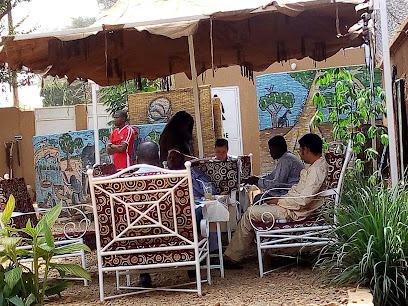
Eden’s Parc & Lounge
Discover Eden's Parc & Lounge in Niamey: A vibrant restaurant and outdoor entertainment hub perfect for food lovers and movie enthusiasts alike.
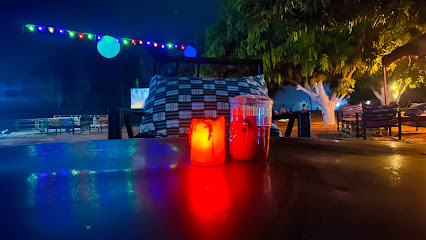
Restaurant Ile de Goree
Discover authentic African flavors at Restaurant Ile de Goree in Niamey, where every dish tells a story of culture and tradition.
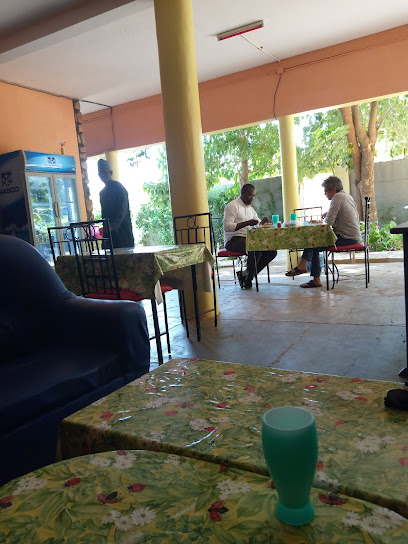
Sahara Land
Discover the flavors of Agadez at Sahara Land – where tradition meets taste in every dish.
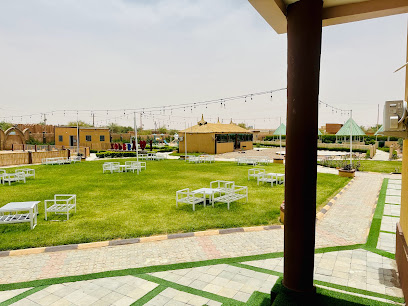
Markets, malls and hidden boutiques
W National Park Benin
Explore W National Park in Benin, where lush landscapes and diverse wildlife await every adventurous traveler seeking an unforgettable experience.
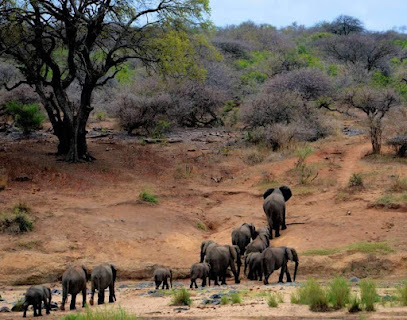
Parque nacional W de Níger
Discover the stunning landscapes and rich wildlife of Parque Nacional W de Níger, a UNESCO World Heritage site full of adventure and beauty.
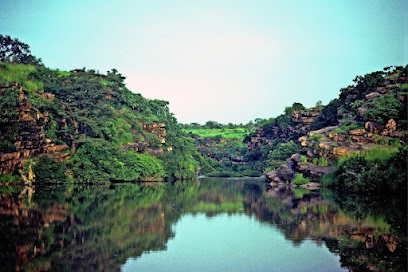
Local Phrases about W National Park
-
- HelloSannu
[sahn-nu] - GoodbyeSai an jima
[sigh ahn jee-mah] - YesEh
[eh] - NoA'a
[ah-ah] - Please/You're welcomeDon Allah
[dohn ah-lah] - Thank youNa gode
[nah goh-deh] - Excuse me/SorrySamu
[sah-moo] - How are you?Yaya ke?
[yah-yah keh] - Fine. And you?Lafiya. Kuma kake?
[lah-fee-yah. koo-mah kah-keh] - Do you speak English?Kana son magana da Turanci?
[kah-nah sohn mah-gah-nah dah too-rahn-chee] - I don't understandBan fahimci ba
[bahn fah-heem-chee bah]
- HelloSannu
-
- I'd like to see the menu, pleaseIna son ganin menu, don Allah
[ee-nah sohn gah-neen meh-noo, dohn ah-lah] - I don't eat meatBan jin gori
[bahn jeen goh-ree] - Cheers!A kai!
[ah kai] - I would like to pay, pleaseIna son yiwa kuwa, don Allah
[ee-nah sohn yee-wah koo-wah, dohn ah-lah]
- I'd like to see the menu, pleaseIna son ganin menu, don Allah
-
- Help!Taimaka!
[tai-mah-kah] - Go away!Hauka!
[hah-oo-kah] - Call the Police!Kira Tukin Jandarma!
[kee-rah too-keen jahn-dahr-mah] - Call a doctor!Kira dokin ilimi!
[kee-rah doh-keen ee-lee-mee] - I'm lostBan gudu
[bahn goo-doo] - I'm illBan yi daidai ba
[bahn yee dah-ee-dye bah]
- Help!Taimaka!
-
- I'd like to buy...Ina son sayi...
[ee-nah sohn sah-yee] - I'm just lookingNa gode
[nah goh-deh] - How much is it?Yaya kudi ne?
[yah-yah koo-dee neh] - That's too expensiveWannan ya fi karfi ne
[wahn-nahn yah fee kah-ree neh] - Can you lower the price?Zaka iya sake sake kudi?
[zah-kah ee-yah sah-keh sah-keh koo-dee]
- I'd like to buy...Ina son sayi...
-
- What time is it?Kilo ne?
[kee-lo neh] - It's one o'clockYa bakin zuwa
[yah bah-keen zoo-wah] - Half past (10)Yan tsaki da bakwai
[yahn tsah-kee dah bah-kwai] - MorningSafe
[sah-feh] - AfternoonRai
[rah-ee] - EveningYamma
[yahm-mah] - YesterdayYau
[yah-oo] - TodayYau
[yah-oo] - TomorrowGobe
[goh-beh] - 1Daya
[dah-yah] - 2Bi
[bee] - 3Uku
[oo-koo] - 4Hudu
[hoo-doo] - 5Biya
[bee-yah] - 6Shida
[shee-dah] - 7Bakwai
[bah-kwai] - 8Takwas
[tahk-wahs] - 9Tara
[tah-rah] - 10Goma
[goh-mah]
- What time is it?Kilo ne?
-
- Where's a/the...?Ina...
[ee-nah...] - What's the address?Yaya adireshin ne?
[yah-yah ah-dee-reh-sheen neh] - Can you show me (on the map)?Zaka iya nuna min (a cikin rubutu)?
[zah-kah ee-yah noo-nah meen (ah chee-keen roo-boo-too)] - When's the next (bus)?Yaya za'a zo daidai ne?
[yah-yah zah ah zoh dah-ee-dye neh] - A ticket (to ....)Tikiti (zuwa...)
[tee-kee-tee (zoo-wah)]
- Where's a/the...?Ina...
History of W National Park
-
W National Park, named after the W-shaped meanders of the Niger River, was established in 1954. The park covers an area of approximately 10,000 square kilometers and spans three countries: Niger, Burkina Faso, and Benin. It is part of the larger W-Arly-Pendjari (WAP) complex, a transboundary protected area recognized for its diverse ecosystems and rich biodiversity. The creation of the park was driven by the need to protect the region's unique flora and fauna from increasing human activity and development.
-
In 1996, W National Park was designated as a UNESCO World Heritage Site, highlighting its global significance. This recognition was based on the park's outstanding natural beauty, ecological processes, and biodiversity. The designation has helped attract international attention and funding for conservation efforts, ensuring the protection of its unique landscapes and species, including elephants, lions, cheetahs, and various bird species.
-
W National Park is home to numerous prehistoric rock art sites, some of which date back thousands of years. These rock paintings and engravings provide invaluable insights into the lives and cultures of ancient human populations that once inhabited the region. The artworks depict a variety of scenes, including hunting, dancing, and animals such as giraffes and elephants, reflecting the rich cultural heritage of the area.
-
During the colonial period, the area now known as W National Park was under French control. The French colonial administration recognized the ecological importance of the region and initiated early conservation measures. These efforts laid the groundwork for the establishment of the park in 1954. Post-independence, the governments of Niger, Burkina Faso, and Benin continued these conservation initiatives, collaborating on cross-border management strategies to protect the park's ecosystems.
-
The region surrounding W National Park has been inhabited by various indigenous communities for centuries, including the Fulani, Gourmantché, and Dendi peoples. These communities have developed sustainable ways of living in harmony with the natural environment, relying on traditional practices such as pastoralism, fishing, and small-scale agriculture. Their deep knowledge of the land and its resources has been integral to the conservation of the park's biodiversity. Efforts are ongoing to involve these communities in the park's management and to preserve their cultural heritage.
-
In recent years, W National Park has faced numerous conservation challenges, including poaching, illegal logging, and encroachment by agricultural activities. Climate change also poses a significant threat to the park's ecosystems. Despite these challenges, various national and international organizations are working together to implement sustainable conservation strategies. Initiatives such as anti-poaching patrols, community-based conservation programs, and ecological monitoring are crucial in ensuring the long-term preservation of W National Park's natural and cultural heritage.
W National Park Essentials
-
W National Park is located in the southeastern part of Niger, near the borders with Burkina Faso and Benin. The nearest major city is Niamey, the capital of Niger, which is approximately 140 kilometers away. From Niamey, you can take a domestic flight to Diori Hamani International Airport, and from there, you can hire a taxi or rent a car to reach the park. Alternatively, you can travel by road from Niamey, which takes about 3-4 hours. It is advisable to use a 4x4 vehicle due to the rough road conditions.
-
Within W National Park, the most common way to get around is by hiring a local guide with a 4x4 vehicle. Guided tours are recommended to navigate the park's terrain and maximize wildlife sightings. There are no public transportation options within the park, so private transportation is essential. For those who prefer self-driving, ensure your vehicle is well-equipped for off-road conditions and bring a detailed map or GPS device.
-
The official currency in Niger is the West African CFA franc (XOF). It is advisable to carry sufficient cash, as credit cards are not widely accepted in the park or nearby areas. ATMs are available in Niamey, but it's best to withdraw enough cash before heading to W National Park. Ensure you have small denominations, as larger bills may be difficult to change in remote areas.
-
W National Park is generally safe for tourists, but standard precautions should be taken. Avoid traveling alone in remote areas and always stay with your group or guide. Be cautious of wildlife and follow the instructions of park rangers and guides. Crime rates targeting tourists are low within the park, but be vigilant and secure your belongings. In Niamey and other urban areas, avoid walking alone at night and stay in well-populated places.
-
In case of an emergency, contact the park authorities or your tour guide immediately. The emergency contact number in Niger is 17 for police and 15 for medical emergencies. It is advisable to have travel insurance that covers medical evacuations. The nearest medical facilities are in Niamey, so carry a basic first aid kit and any necessary medications. For minor health issues, consult with your guide, who can provide assistance or contact local health services.
-
Fashion: Do wear lightweight, long-sleeved clothing to protect against the sun and insects. Avoid wearing bright colors that may startle wildlife. Religion: Do respect local customs and traditions, especially in nearby villages. Dress modestly and be mindful of local sensitivities. Public Transport: Do plan your transportation in advance, as public transport is not available within the park. Don't rely on finding transport options once you arrive. Greetings: Do greet locals with a smile and a handshake. Learn a few basic phrases in French or Hausa to show respect. Eating & Drinking: Do try local dishes and drink plenty of water to stay hydrated. Don't drink tap water; always opt for bottled or purified water.
-
To experience W National Park like a local, consider visiting during the dry season (November to April) when wildlife is more easily spotted around water sources. Engage with local guides, who have extensive knowledge of the park's flora and fauna. Participate in a traditional dance or cultural event in nearby villages to immerse yourself in the local culture. Don't miss the opportunity to take a boat trip on the Niger River, offering a unique perspective on the park's diverse ecosystem.
Nearby Cities to W National Park
-
Things To Do in Ziniaré
-
Things To Do in Ouagadougou
-
Things To Do in Tamale
-
Things To Do in Koudougou
-
Things To Do in Ouahigouya
-
Things To Do in Atakpamé
-
Things To Do in Ibadan
-
Things To Do in Wa
-
Things To Do in Abeokuta
-
Things To Do in Kaduna
-
Things To Do in Notse
-
Things To Do in Dédougou
-
Things To Do in Kpalimé
-
Things To Do in Lokossa
-
Things To Do in Porto-Novo








